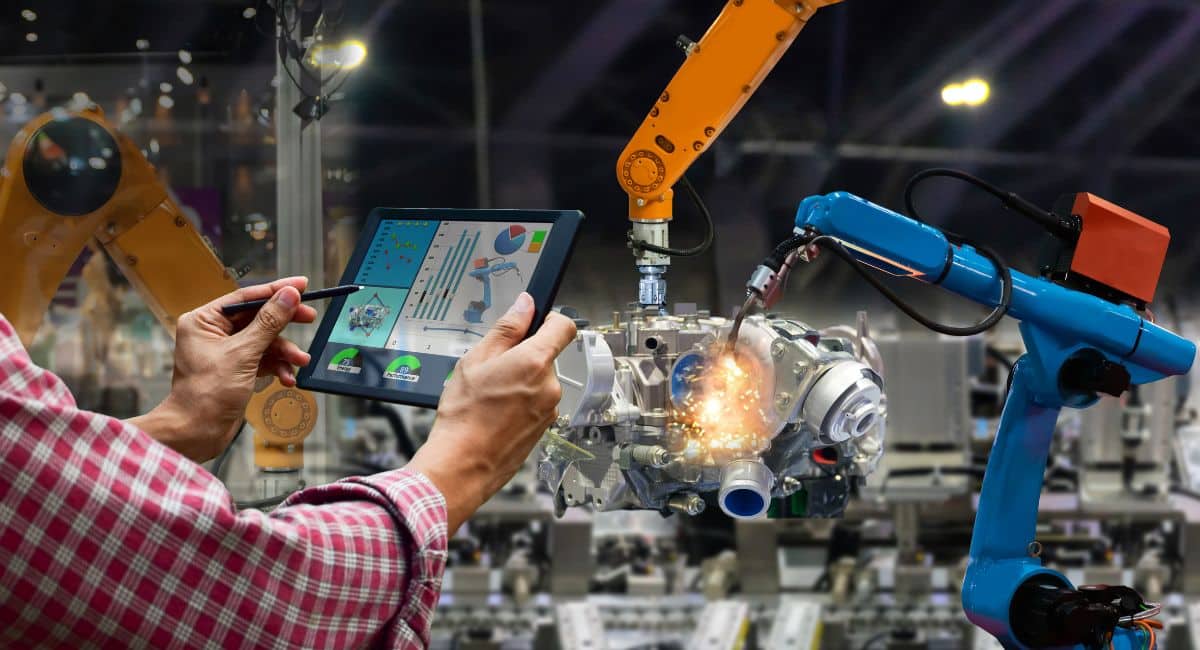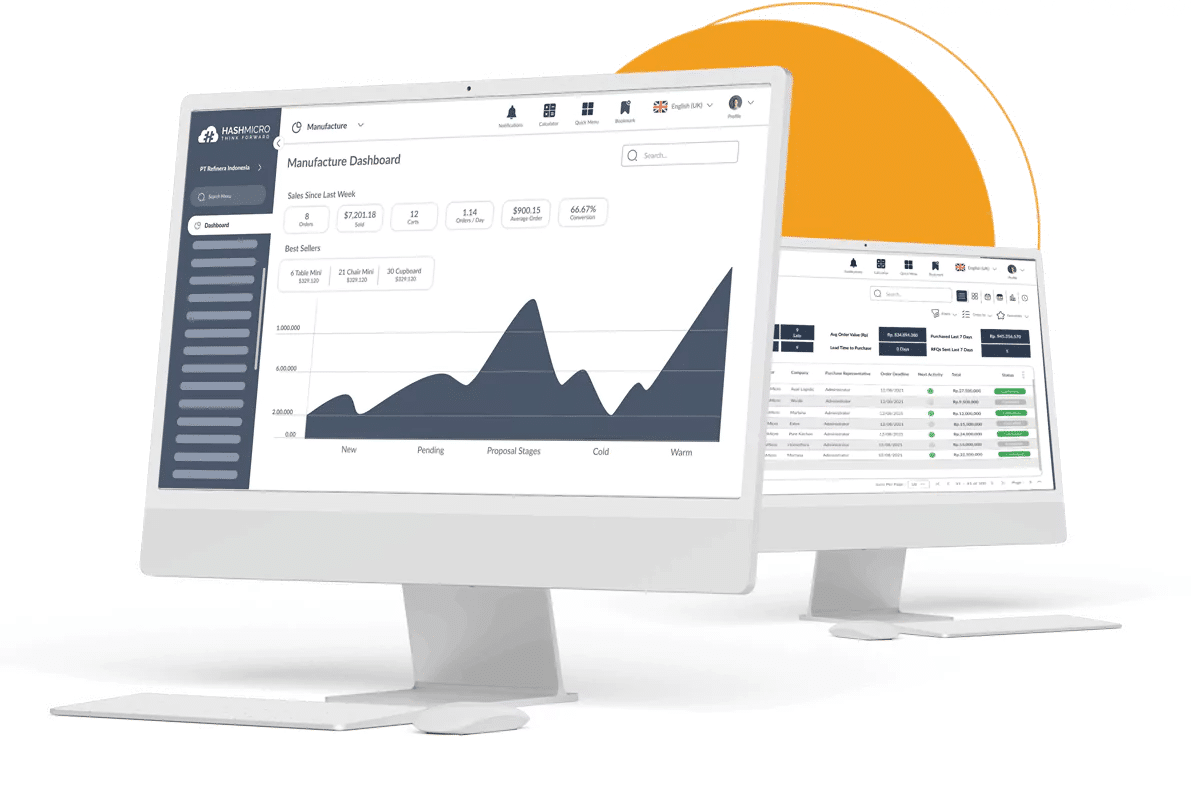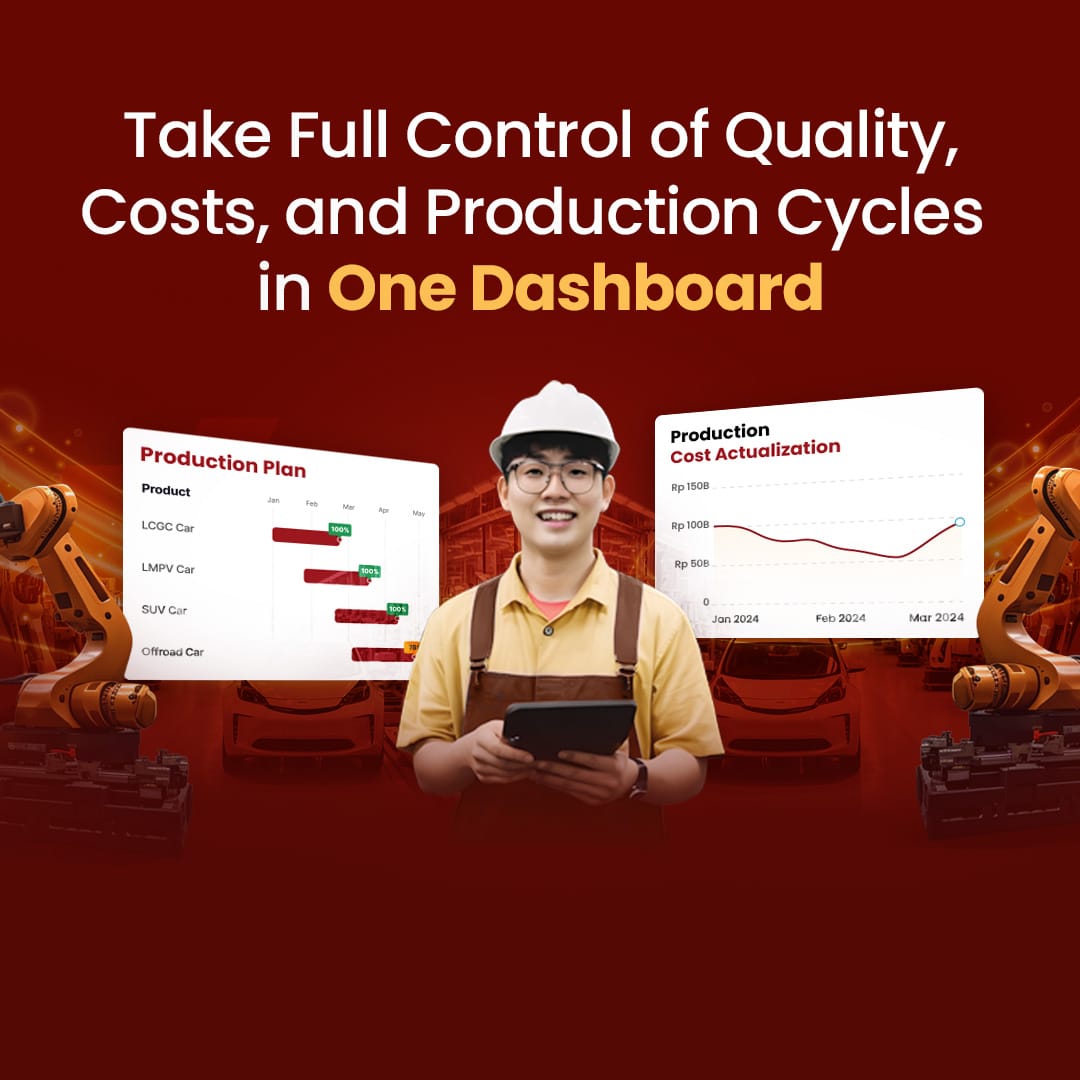Complex manufacturing in the high-tech industry poses challenges stemming from intricate processes and rapid technological changes. However, these challenges can be tackled with ERP for high-tech.
How can ERP systems benefit the high-tech industry? Read here to find out!

Table of Content:
Table of Content
What Is ERP for the High-Tech Industry?
Enterprise Resource Planning (ERP) solutions for the high-tech industry is a comprehensive software solution designed to streamline and optimize the intricate operations of companies operating within the high-tech sector.
This industry encompasses advanced technology companies involved in high-tech electronics manufacturing, software development, telecommunications, hardware production, and other technology-driven domains.
ERP for the high-tech industry integrates various business functions into a unified platform, including manufacturing, supply chain management, sales, finance, inventory, and more.
It enables these companies to efficiently manage complex processes, such as product design, research and development, rapid production cycles, and global distribution networks.
By providing real-time visibility into all aspects of operations, ERP empowers high-tech manufacturing companies to make informed decisions, enhance collaboration, improve resource allocation, and respond swiftly to market changes.
This ultimately fosters innovation and maintains a competitive edge in the fast-paced world of technology.
The Benefits of ERP for High-Tech Industry
The high-tech industry operates within a dynamic landscape where innovation is constant and demands are ever-evolving.
In such a fast-paced environment, streamlined management of complex manufacturing processes becomes crucial.
To address these challenges, Enterprise Resource Planning (ERP) systems have emerged as a pivotal tool that empowers high-tech manufacturers with a range of strategic advantages.
Enhanced production efficiency
In the ever-evolving high-tech landscape, continuous product innovation and updates are vital.
ERP systems cater to various operational needs by automating data transfers and management across departments.
This streamlines processes and ensures seamless coordination, enabling companies to efficiently adapt to dynamic industry trends.
Gaining a competitive edge
Remaining competitive and expanding internationally requires adaptable ERP systems for high-tech firms.
Through these systems, seamless integration with third-party applications extends capabilities, fostering growth and innovation by streamlining operations and capitalizing on opportunities to enhance market presence and profitability.
Real-time data insights
ERPs provide comprehensive, real-time insights into high-tech business operations across their lifecycle.
Access to comprehensive real-time data empowers informed decision-making, optimizing workflows, accelerating time-to-market, and capitalizing on emerging prospects.
Therefore by offering in-depth visibility and control, ERPs empower owners and managers to drive operational excellence and growth.
Better customer relationships
Customer relationships are pivotal in the high-tech sector. Therefore, a swift response to evolving product and service demands is necessary.
Integrating customer relationship management (CRM) features with advanced Business Intelligence (BI) tools empowers ERPs to forecast, evaluate, and meet customer needs proactively.
By facilitating immediate access to customer details and enabling swift responses, ERPs enhance customer satisfaction across various touchpoints, including pre-sales, sales, and support interactions.
Flexibility and adaptability
The high-tech industry demands constant responsiveness to market dynamics and customer expectations.
Employing a flexible ERP system, characterized by its scalability and adaptable nature, is crucial for efficiently processing business data.
Why? Because it leads to prompt insights and agile actions.
This agility prevents project delays, conserves resources, and upholds cost-effective practices.
Thus, a well-structured ERP guarantees smooth operations, effective financial management, precise reporting, and adherence to regulatory standards.
What Are the Key Features of ERP for High-Tech Industry?
In the dynamic landscape of the high-tech industry, Enterprise Resource Planning systems offer a suite of specialized functionalities to address the unique challenges and demands of this sector, particularly in discrete manufacturing.
These key features of ERP for the high-tech industry provide manufacturers with the tools necessary to streamline operations, optimize production, and ensure seamless coordination across global supply chains.
Elevated quality control and monitoring
The high-tech industry places great emphasis on quality control due to the significant repercussions of component failures.
ERP systems facilitate robust inspection and testing plans that capture quality data, manage non-conformances, and drive corrective and preventative actions.
These systems enable the establishment of quality tolerances, collection of attribute-based quality data, integration with testing instruments for automated data capture, and the resolution of defects through processes such as rework, dispositioning, and corrective actions.
Advanced product engineering and cost management
In the high-tech sector, the ability to manage intricate product structures and costs efficiently is essential.
ERP plays a pivotal role by supporting complex product configurations and engineering controls, incorporating multi-level bills-of-material and meticulous engineering oversight.
Furthermore, these systems facilitate optimal product design and manufacturing through simulations that assess different components and manufacturing routes, ensuring profitable outcomes.
Project coordination and optimization
Within the ERP framework, project functionality acts as a unifying factor, connecting various data and processes.
Particularly crucial for engineer-to-order high-tech manufacturers, effective project management becomes vital.
This is because it enables meticulous resource and profit management on a project-by-project basis.
It encompasses planning, tracking, scheduling, and accounting for project activities, encompassing actual vs. budget evaluations, invoicing methods, and revenue recognition strategies.
Enhanced after-sales service models
Cultivating robust customer relationships and tapping into recurring revenue streams is pivotal for high-tech companies through after-sales services.
ERP high-tech software plays a pivotal role in executing successful service models.
This includes maintaining records of product service history, managing service contracts and warranties, overseeing subscription-based services, and efficiently coordinating field and technical service operations.
Such functionalities empower businesses to redefine customer retention strategies and capitalize on high-margin revenue streams.
Complex supply chains navigator
Industries like high-tech, as evidenced by the semiconductor shortage, are exposed to supply chain vulnerabilities.
ERP tech systems enhance supply chain resilience by aiding in the identification of alternative suppliers, distribution of purchases among multiple vendors, adjustments to lead times, implementation of supplier scorecards, and the creation of customer dashboards.
Moreover, ERP’s supply chain feature extends to streamlining vendor sourcing through modules facilitating request-for-quotation (RFQ).
This simplifies bid submission, vendor selection, and purchase order generation.
How ERP Helps Manage Complex Manufacturing in High-Tech Industry
ERP systems for high-tech are a cornerstone in efficiently managing the intricate manufacturing processes within the high-tech industry.
In a sector characterized by rapid innovation, the ERP system offers a comprehensive solution by amalgamating functions like inventory management, production planning, supply chain coordination, and financial oversight into a cohesive platform.
This integration provides manufacturers with real-time insights, enabling informed decisions based on accurate data.
The software aids in optimizing production schedules, aligning resources, and minimizing bottlenecks, thus enhancing efficiency in an industry where short product lifecycles are the norm.
In the high-tech landscape, marked by global supply chains and demanding quality standards, ERP system plays a vital role in maintaining seamless operations.
By facilitating communication with suppliers, ensuring timely availability of components, and offering tools for quality control, the system prevents disruptions and strengthens vendor relationships.
Procurement and inventory management integration within the system strikes a balance between inventory levels and customer orders, reducing costs while meeting demand.
Moreover, the financial modules of the ERP system enable meticulous tracking of costs, budget adherence, and financial projections, aligning operational decisions with the overall fiscal well-being of the organization.
As high-tech manufacturing continues to evolve, high-tech ERP stands as an indispensable asset, empowering manufacturers to navigate challenges with dexterity and precision. Your business can achieve these with the HashMicro’s ERP Software, an all in one solution for your high-tech business!
Recommended ERP for High-Tech Industry: Hash Manufacturing Automation from HashMicro
Hash Manufacturing Automation from HashMicro is a cutting-edge ERP system reshaping high-tech industry production efficiency.
Trusted by industry leaders, this cloud-based solution redefines the production process through meticulous raw material planning, ensuring a seamless and responsive approach to customer demands.
Real-time empowerment is the norm with Hash Manufacturing Automation, with the self-manufacturing kiosk driving proactive productivity.
The software adeptly handles manufacturing expenses in real time, from raw materials to finished goods.
Moreover, automatic, reliable expense reporting enhances strategic decisions and revenue generation.
Aligning stock availability with factory needs is a whole lot easier with the software’s real-time stock monitoring and procurement.
Overall, Hash Manufacturing Automation streamlines operations across departments, automating cost tracking and comprehensive reporting.
With HashMicro, automation simplifies complexities, enhances decision-making, and drives high-tech industries toward unparalleled success.
For a free taste of this ERP for high-tech systems, you can click here.
Conclusion

In summary, ERP systems effectively tackle the challenges of intricate manufacturing and rapid changes in the high-tech industry.
By integrating various functions and offering real-time insights, they enhance decision-making and production efficiency.
ERP also ensures seamless operations, supplier communication, and quality control.
As high-tech manufacturing evolves, ERP remains indispensable, for example, Hash Manufacturing Automation from HashMicro, streamlining operations and driving productivity for industry success.




































